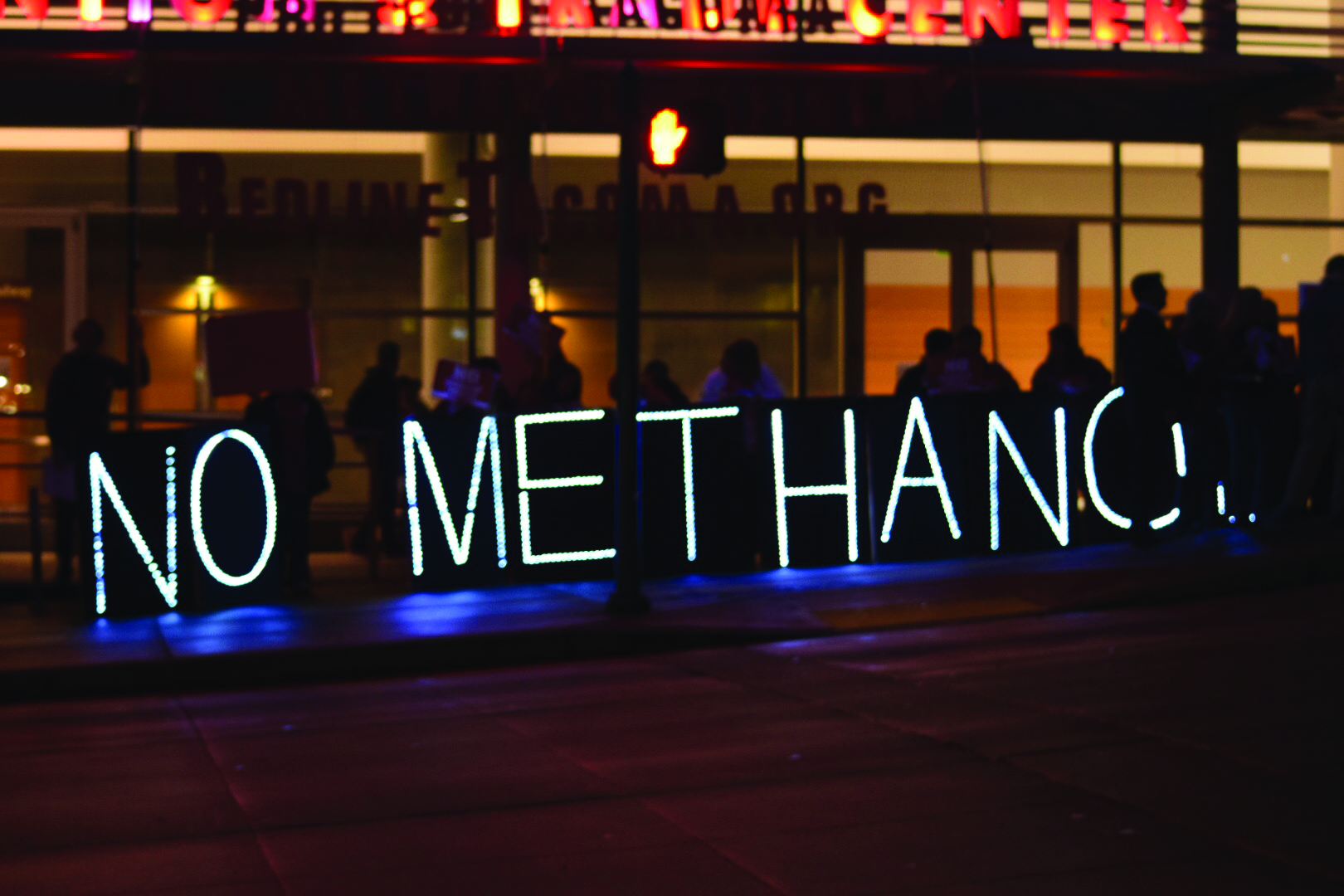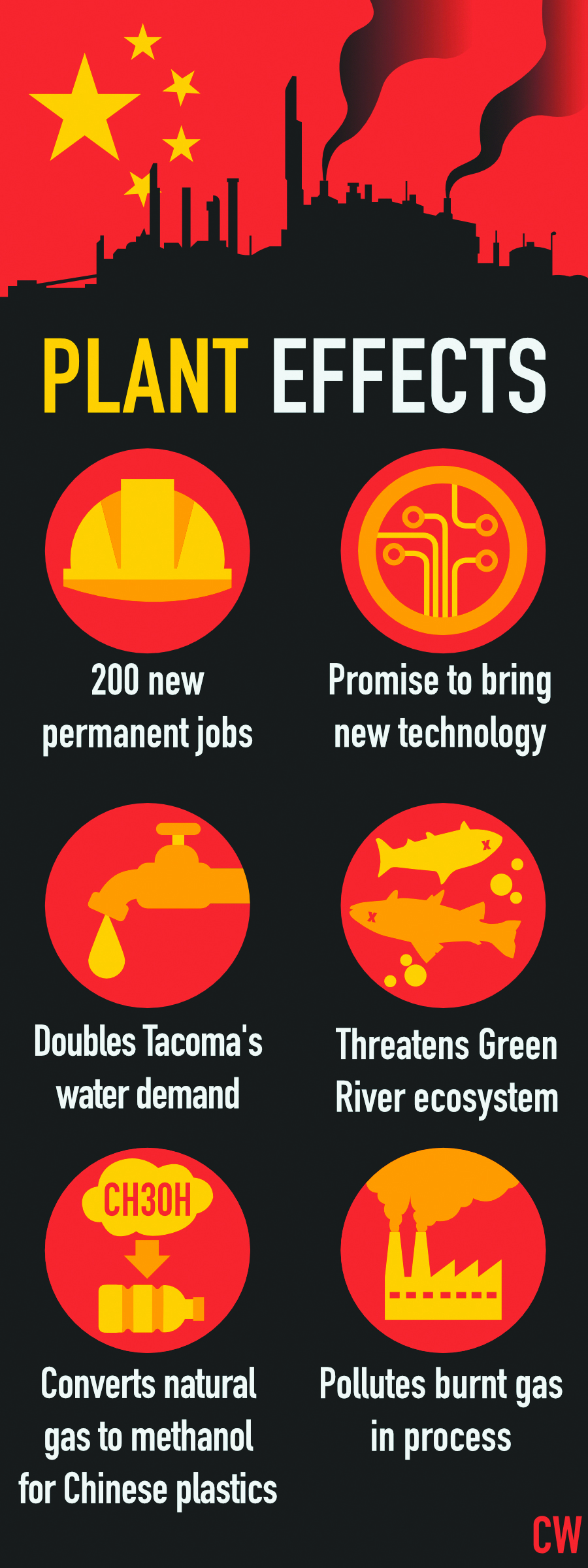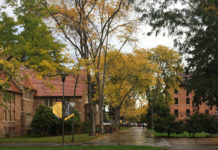
Northwest Innovation Works (NIW) is proposing building facility to convert natural gas into methanol at the Kaiser Aluminum site in the Port of Tacoma.
According to NIW, “The methanol will be used as feedstock in Asia to produce olefin, a compound used in such consumer goods as plastic containers, cell phones and carpet fibers. The cleaner-burning methanol would help reduce China’s reliance on higher-emission coal and petroleum.”
This is PLU student Helen Smith’s opinion on the issue:
The winds of change are coming to Tacoma, Wash. Instead of carrying the familiar “Aroma of Tacoma” from the paper mill, they may be carrying emissions from what is planned to be the biggest methanol plant in the world. The project is right in the Port of Tacoma and largely backed by investors from China. According to the environmental group, Citizens for a Healthy Bay, 20,000 gallons of methanol could be produced daily, which would then get shipped to China and be used to manufacture plastics.
The plant offers many interesting new opportunities to the Tacoma area, including 200 permanent jobs. Plant designers have also vowed to use up-to-date technology which is supposed to lower emissions. However, that technology has never been used on a plant of this scale. The sheer size of the plant itself makes the environmental impact difficult to anticipate because there has never been a plant this large before. Whatever positives may come out of this, the plant could threaten other staples, including the environment, of Tacoma life just with its magnitude.

According to Q13 Fox, the plant would require exorbitant amounts of water resources, using between 14-22 million gallons of water daily. The entire city of Tacoma uses 15 million gallons each day. This new plant would place twice the amount of burden on Tacoma’s main water source, the Green river, than it already does. The Green river’s water levels are already low because of the recent drought and lower than average snowpack in recent years. Low water levels currently threaten the Green river ecosystem and wildlife, including culturally important Pacific Northwest (PNW) creatures like the Chinook Salmon and the Orca whales who feed on them.
At the present time, it’s not possible to tell how wide-reaching the impacts of this plant will go. According to the Vashon Beachcomber, the environmental impact study will also include the impacts of transporting methanol across the Pacific to China and the plastics made with the methanol.
With some of the most important features of Washington at stake, a methanol plant is too big of a risk. At it’s heart, Tacoma is not an industrial city. Tacoma residents believe in Mount Rainier, farmers markets and the forests that supposedly house the infamous Sasquatch. Salmon are so important to PNW culture that when it came time for Washington to have its own quarter, it was the fish that someone decided to slap on the side of it opposite George Washington’s head. These are the staples of PNW living and the citizens shouldn’t have to compromise.
The environment is so important in Tacoma that it even manifests itself at Pacific Lutheran University, where they teach students to care for the earth. Whatever short term benefits may come from an operation this size could also undoubtedly be found in investing in renewable energy instead, something that is definitely the way of the future, and is more true to the values of the city itself.
Opposition to the plant has been vocal, so much that Northwest Innovation Works (NIW), the company behind the plant, has postponed moving forward with the project hoping to first drum more support from the public. Although I find it hard to believe that NIW is going to find much. We are a people that loved trees so much that Washington is called “The Evergreen State.”
The only thing surprising about this situation is that someone thought they could put an industrial plant in Tacoma without a fight, because Tacoma makes its priorities obvious, wearing our hearts are on our sleeves.



















